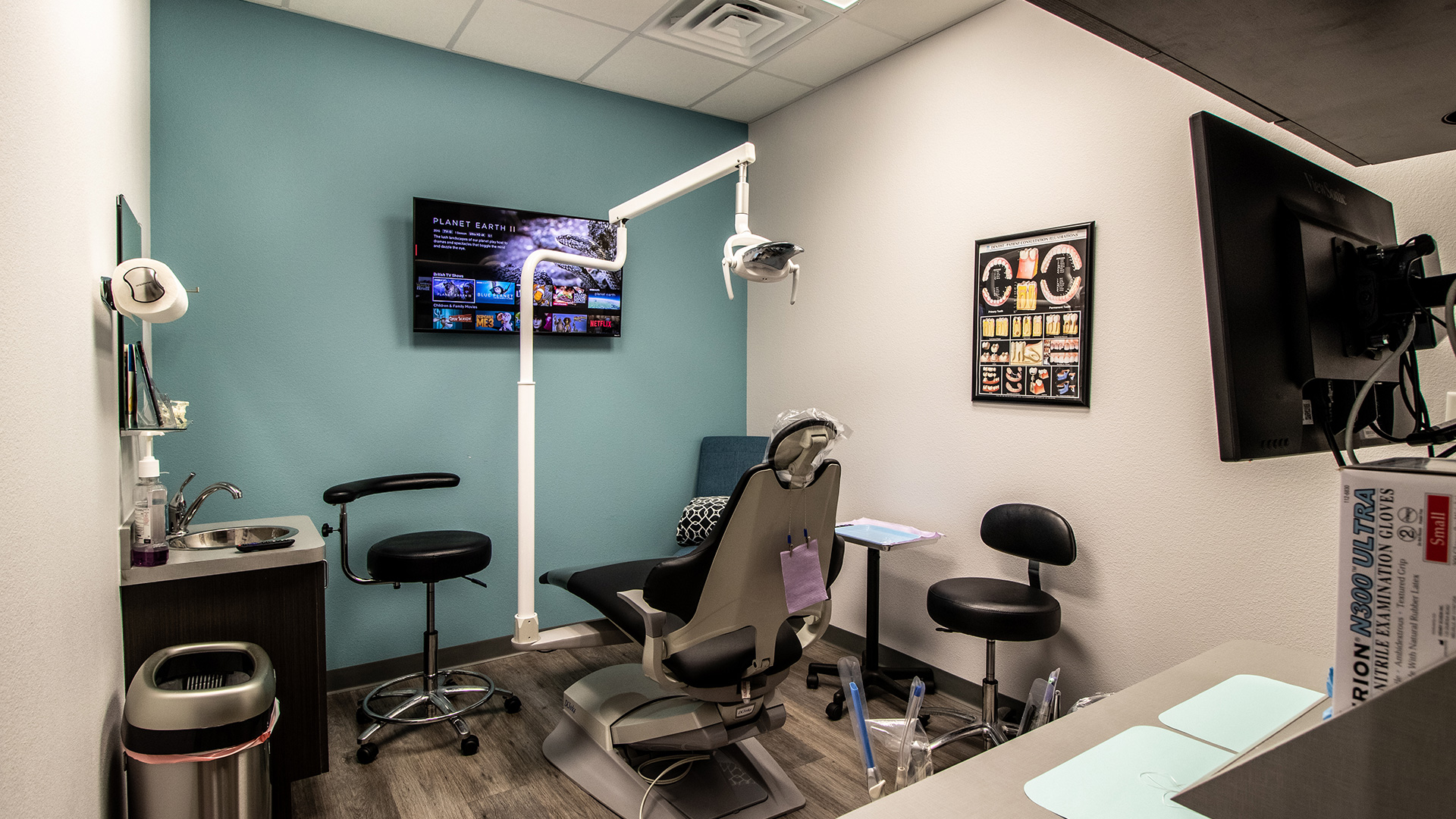When choosing a restorative treatment, it’s crucial to weigh all of your options before deciding on the best option for you. Patients frequently worry whether they should have a dental bridge or dental implants when it comes to tooth replacement. Both are restorative alternatives for missing teeth, and understanding the differences is critical. At Active Dental in Dallas-Fort Worth, TX, we provide a thorough examination of our patients’ teeth and mouths, as well as an explanation of the differences between the various restorative options. To decide the best course of action, our staff works closely with our patients.
What is a Dental Bridge?
A dental bridge is a fixed restoration that fills the gap created by one or more missing teeth. Bridges are anchored to one or more neighboring teeth also known as abutment teeth. Bridges can be supported by natural teeth or by dental implants. The false teeth are in-between and are called pontics.
How Do Dental Bridges Work?
During your first visit to our dental office, the adjacent teeth are prepared. To create room for the crown, a bridge requires the removal of a piece of the enamel. The crowns are cemented to the neighboring teeth. Temporary bridges are used while you wait for your permanent bridge, which is created in the lab using impressions of your teeth.
When the patients return to the office, the temporary bridge is taken away to make room for the permanent bridge. The new bridge in place, and we’re checking it out to make sure it’s comfy and fits well. It is possible that patients will need to return to our office to ensure that the bridge is properly aligned with their bite. Once we’ve confirmed that the bridge fits properly, we’ll cement it in place.
How Long Will Dental Bridges Last?
Dental bridges have a 10-15 year life expectancy. Bridges utilize a portion of your natural teeth, which might cause the bridge to break over time. The teeth around the bridge are still vulnerable to decay and disease, reducing the bridge’s lifespan. Patients must practice proper oral hygiene at home in order to keep the bridge and surrounding teeth clean. Dr. Kalpesh Patel and Dr. Misha Kazi, dentists in Dallas-Fort Worth, TX, recommend brushing twice a day and flossing once a day to keep the fake and natural teeth clean. Visits to our office on a regular basis can help maintain your teeth clean and your bridge looking and feeling great.
What Are the Benefits of Dental Bridges?
- Surgery is not required
- Dental bridges tend to be less costly compared to implants
- Jawbone density is not an issue with bridges
- Overall the bridge procedure is less invasive compared to dental implants
What Are Dental Implants?
Implants are a long-term solution for people with missing, cracked, or damaged teeth. They last a long time and work in the same way as a screw inserted into the jawbone. The screw acts as an artificial tooth root, providing a stable basis for one or more prosthetic teeth. In order for the implant to connect to the jawbone, it must heal for a period of time. This process allows the implant to function in the same way as a natural tooth.
How Do Dental Implants Work?
Dental implants require multiple appointments and the process takes a few months. The first step involves placing the implant into the patient’s jawbone. Once this is done there is a healing period where we must give the implant time to fuse to the jawbone. This process is known as osseointegration.
The first step in our implant evaluation process is to see if the patient’s jawbone is strong enough to support the implants. Bone grafting may be used if necessary to provide patients with the necessary support. After the healing process is complete, the patient returns to our office, and an abutment or connector is placed on top of the implants. This allows the crown to be secured to the implant. Custom crowns are made to match the size, shape, and color of your natural teeth. Temporary crowns can be used while patients wait for their permanent crowns to be placed.
How Long Will Dental Implants Last?
If properly cared for, dental implants can last up to 25 years or even a lifetime. Titanium implants provide patients with a long-term solution to missing teeth. Dental implants, like natural teeth, require similar care, and our Dallas-Fort Worth, TX dental office recommends that you maintain basic oral hygiene at home to keep your implants looking and feeling great.
What Are the Benefits of Dental Implants?
- Dental implants are long lasting, and are a permanent restorative solution
- Easy to care for
- Implants function like natural teeth
- Chewing power is restored with dental implants
- Speech and overall appearance are improved
- Patients can eat all the foods they normally would with implants
- Dental Implants tend to cost more, but are a good investment because they are built to last
Looking for a Dentist to Provide Dental Implants or Dental Bridges in Dallas-Fort Worth, TX?
It’s a big decision to pick the best restorative solution, and we’re here to help. During the consultation, we will answer all of your questions and discuss which option is best for you. Our goal is for our patients to be proud of their smiles, and our staff works hard to achieve that goal. We use cutting-edge technology while providing a friendly and relaxing environment for our patients at Active Dental . We specialize in giving our patients beautiful smiles, and we take delight in giving them a smile they can be proud of.
If you are interested in finding out more about your restorative options such as dental implants or dental bridges, please contact Dr. Yousif Bolus or Dr. Kalpesh Patel today to schedule your consultation.




